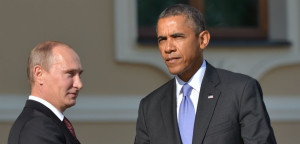Mes: septiembre 2015
Cultural: Kvlthammer – Hate Is Not Enough (2014)
California Legislature Approves Assisted Suicide Bill

Debbie Ziegler holds a photo of her daughter, Brittany Maynard, as she receives congratulations from Ellen Pontac, after a right-to die measure was approved by the state Assembly, Wednesday, Sept. 9, 2015, in Sacramento, Calif. Rich Pedroncelli/AP
The California State Legislature approved a bill Friday that would make it legal for doctors to help terminally ill patients end their lives.
The End of Life Option Act was passed by the State Assembly on Wednesday; Friday’s final approval by the Senate sends the bill to Gov. Jerry Brown.
Brown, a former Jesuit seminarian, has not indicated whether he will sign the bill, April Dembosky with member station KQED in San Francisco tells All Things Considered. “We do know if he does nothing, in 30 days the bill will become law,” she says.
Oregon, Washington, Vermont and Montana already have similar right-to-die laws on the books. Dembosky says the California bill is intended only for people with six months or less to live.
“The idea is really for patients who are very near death, maybe weeks away, whose suffering has become unbearable or intolerable, they could ask their doctor for drugs that could end their lives,” Dembosky says, adding that there are many guidelines to meet before a patient can obtain the medicine.
“First of all, patients have to be physically able to swallow the drugs themselves, and also they have to be mentally capable of making medical decisions. This not something for Alzheimer’s patients or people who suffer from severe depression.“
But there is significant opposition to the bill. Most of it, Dembosky says, comes from religious groups who say only God can decide when a person’s life is going to end.
Disability rights groups also oppose the bill because they are worried about the potential for abuse of the law. Dembosky says the groups argue that a person who is concerned about being a financial burden on their family could “either choose or be pressured into taking these life-ending drugs instead of pursuing more expensive life-sustaining treatments.”
But she says a number of protections have been added over the last couple of months to guard against these fears.
“For example, the bill makes it a felony for a health insurance company … to deny treatment or coverage based on whether a patient seeks these drugs or not,” she says. “Patients also have to ask for the drugs three times before they can get them, once in writing in front of two witnesses.”
Similar bills have failed in the state legislature before, but proponents of right-to-die laws rallied support last year when 29-year-old Brittany Maynard, who suffered from incurable brain cancer, moved to Oregon to end her life via legal assisted suicide. As the Two-Way previously reported, Maynard wrote a CNN op-ed in which she concluded that death was the best option for her:
“Because the rest of my body is young and healthy, I am likely to physically hang on for a long time even though cancer is eating my mind. I probably would have suffered in hospice care for weeks or even months. And my family would have had to watch that.
“I did not want this nightmare scenario for my family, so I started researching death with dignity. It is an end-of-life option for mentally competent, terminally ill patients with a prognosis of six months or less to live. It would enable me to use the medical practice of aid in dying: I could request and receive a prescription from a physician for medication that I could self-ingest to end my dying process if it becomes unbearable.
“I quickly decided that death with dignity was the best option for me and my family.”
In: npr
Gentleman’s barbershop fined $750 for refusing to cut a woman’s hair
A barbershop in Pennsylvania has been fined $750 for refusing to cut a woman’s hair.
lhanna@nydailynews.com
Barbiere of Washington County is aimed at the upscale gentleman’s market, offering clients a complimentary cocktail or a cold beer with their haircut.
But owner John Interval ran into trouble with authorities when staff refused to cut a woman’s hair in his establishment.
Diamond Pecjak filed an action with the state’s Bureau of Professional and Occupational Affairs after the incident.
And the agency then imposed a fine for gender discrimination after a state investigator visited the business and interviewed Interval.
“I didn’t really consider it so much a discrimination thing as it’s a barbershop … for guys,” Interval told CBS Pittsburgh.

Diamond Pecjak filed a complaint after being refused service at a barbershop in Washington County, Pa. FACEBOOK
Clients supported the barbership and nearly 100 supporters signed a petition in opposition of the board’s ruling, according to the Observer Reporter.
“I think it’s ridiculous. You can clearly see no women come here to get their hair cut,” said Jeff Andrewson, a U.S. Navy recruiter.
Interval says he wasn’t aware he was legally compelled to provide the service, but he does intend to pay the fine out of respect the law.
And now, the businessman hopes to expand his business to cater for the female market.
“You know, I’m not opposed to doing women’s hair,” Interval added.
“Just not in this shop. I don’t even have the equipment to do women’s hair.
“I want to open a shop to cater to them and no men will be allowed there. They’ll have all the champagne and mimosas they want, and that’ll be on the house.”
In: nydailynews
Perú: Ejército dictó inamovilidad absoluta tras hallazgos de granadas
Agentes de la UDEX y la SUAT encontraron este jueves 53 granadas en intervenciones en Breña y Cercado de Lima
El Ejército Peruano decretó orden de “inamovilidad absoluta” en todas las unidades y dependencias del país, la cual estará vigente hasta las 10 de la noche.
Según informó el comandante general del Ejército, Enrique Vergara, a RPP, esta orden solo busca pasar lista en las tropas a fin de conocer “si el personal está completo”.
No obstante, luego de que Perú.21 diera la primera noticia sobre la orden, fuentes del Ministerio de Defensa indicaron a El Comercio que dicha medida está relacionada con los recientes hallazgos de granadas de guerra con fines extorsivos y de venta en el mercado ilegal.
#Breña: policía incautó 51 granadas escondidas en local [#VIDEO] http://t.co/nD1XaVeBtO pic.twitter.com/xWkFz5NTPd
— Lima_El Comercio (@Lima_ECpe) September 10, 2015
Precisamente, este jueves agentes de la Unidad de Desactivación de Explosivos (UDEX) intervinieron una vivienda en Breña y encontraron 51 granadas tipo piña. Durante el operativo una persona fue detenida.
Se trata de Edmundo Rubén Mamani Gamarra, 51 Años, un ex policía que en el año 2007 fue detenido con armamento del Ejército Peruano.
Horas después, la policía encontró otras dos granadas tras inspeccionar una tienda de venta de ropa usada en la galería El Progreso de Las Malvinas, en el Cercado de Lima. Al parecer, este local estaría vinculado con Mamani Gamarra.
Cercado: hallan otras dos granadas en galería Las Malvinas [#VIDEO] http://t.co/RzK1KhW9iX pic.twitter.com/6PJZG3kBj7
— Lima_El Comercio (@Lima_ECpe) September 10, 2015
En: elcomercio
BREAKING: Senate Dems Block Anti-Iran Deal Bill, Deal to Move Forward
Forty-two Democratic senators voted to filibuster the bill that would have halted the deal President Obama and several international partners signed with Iran limiting that country’s nuclear capabilities. The vote effectively kills the bill, meaning the deal will move forward.
The fate of the bill has not been in doubt since last week, when enough Democratic senators expressed enough support to sustain President Obama’s promised veto of the bill.
The bill is the result of a deal Obama struck with Republicans to give them a 60-day review process of the deal with Iran. But Republicans have opposed the deal from the start. At a rally on the steps of Congress yesterday, presidential candidates Ted Cruz and Donald Trump, along with Sarah Palin and other GOP luminaries, decried the deal and urged Republicans in Congress to do anything in their power to kill it.
The deal limits Iran’s ability to obtain or process uranium and plutonium for 15 years and opens the country’s nuclear facilities to inspections. Some Democrats, including Charles Schumer, the likely next head of the party’s Senate caucus, opposed the deal, but the overwhelming majority of Democrats support President Obama’s move to prevent Iran from obtaining a nuclear weapon.
In: BNR
The King and ISIS
King Salman came to Washington touting military and counterterrorism cooperation. But can the U.S.-Saudi relationship survive the House of Saud’s sponsorship of Islamic radicalism across the globe?
en Saudi Arabia’s King Salman made his first visit to Washington since ascending the throne in January, his goals were simple. The 79-year-old ruler wanted to paper over the disputes that have eroded the U.S.-Saudi relationship for years and extract from President Barack Obama’s administration a payoff for Riyadh’s tepid support of the nuclear deal with Iran. With the White House eager to maintain momentum on the nuclear agreement after securing the Senate votes to block the Republican rejection of the deal, King Salman’s timing was excellent — all but erasing memories of his no-show at a Camp David conference of Gulf leaders in May.
Papering over differences is one of diplomacy’s finer and more useful arts. With the Saudis anxious about a possible warming in the U.S. relationship with Iran and sharp disagreements regarding Syria, Egypt, Iraq, and the broader sectarian blood bath in the Middle East, the visit was a solid piece of work in the service of Washington’s ever more schizophrenic partnership with Riyadh — perhaps the most convoluted bilateral relationship the United States has had with any country. The atmospherics around the visit were sufficiently positive that few mentioned the contradictions that seem to be fraying ties between the United States and its longtime friend in the Gulf.
One commentator who did dwell on the deep dissonance in the relationship was Thomas Friedman, in a New York Times column published just before King Salman’s arrival. Teeing off on some benighted retired Air Force general who opposed the nuclear deal on the grounds that Iran was the leading sponsor of Islamic radicalism in the world, Friedman exclaimed: “Nothing has been more corrosive to the stability and modernization of the Arab world, and the Muslim world at large, than the billions and billions of dollars the Saudis have invested since the 1970s into wiping out the pluralism of Islam … and imposing in its place the puritanical, anti-modern, anti-women, anti-Western, anti-pluralistic Wahhabi Salafist brand of Islam.”
Friedman is on target in arguing that Saudi Arabia’s contribution to Islamist extremism has far outstripped Iran’s. Indeed, Tehran’s effort to transcend sect and become the leader of the Muslim world’s radical rejectionist stream has been in tatters since the Arab Spring and the heightening of sectarian tensions because of the Syrian civil war. Although systemic misgovernance is the Arab world’s deadliest disease, Saudi Arabia’s energetic propagation of Wahhabism — which began as a response to Iran’s Islamic Revolution in 1979 — has been central to the rise of violent extremism, from Indonesia to Mali.
Wahhabism has been a devastating invasive species in Islam’s enormous ecosystem — it’s the zebra mussel, the Asian Tiger mosquito, and the emerald ash borer wrapped into one. The consequences have been fateful: A solid line of causation from the slaughter in Islamic State-controlled Iraq and the tragedy of 9/11 traces back directly to Saudi evangelization and the many radical mosques and extremist NGOs it spawned.
Friedman’s explanation for why the United States has never challenged Riyadh is crude — in both senses of the word. “We’re addicted to their oil and addicts never tell the truth to their pushers,” he wrote.
This is too easy; if oil were the only vital U.S. interest binding it to the kingdom, dealing with the export of extremism would be vastly easier. What Friedman and almost everyone else misses is the increasingly pivotal importance of counterterrorism cooperation in the U.S.-Saudi relationship. That may set heads spinning, but when it comes to tactical counterterrorism — uncovering conspiracies and disrupting them — Saudi Arabia has become an invaluable partner, one of the very best Washington has.
Following Saudi Arabia’s apparent epiphany after the May 2003 bombings in Riyadh, which killed 39 people, ties between U.S. counterterrorism authorities and their Saudi counterparts have grown close, collegial, and effective. There is a reason why Interior Minister Mohammed bin Nayef, now second in line to the throne and the architect of Saudi counterterrorism strategy, is far and away Washington’s favorite leader in Riyadh.
The golden age of this cooperation began in 2009, when the terrorist threat was developing most dangerously in the kingdom’s backyard: Yemen. Saudi counterterrorism cooperation at the time prevented hundreds of American deaths, possibly more. Some of the cases are well-known, like the plot to hide bombs in printer cartridges aboard U.S.-bound planes. Without these tips, one or more aircraft would have gone down. Other operations have helped the United States defend against a new class of undetectable bombs that might also be used against aviation. Wherever else one might find fault with them, the Saudis did superb work in these cases.
The cooperation extends beyond the cloak and dagger stuff. Since 2003, the Saudi government’s work on counterterrorism finance has improved considerably, and its efforts in the area of rehabilitating extremists have been recognized internationally.
Still, there is an extraordinary paradox here. Because of the large sums that flow from the country’s religious establishment and huge NGOs to institutions that promote Wahhabi-style Islam — with its malignant views of Shiites, Jews, Christians, and the West — Saudi Arabia remains the fountainhead for Islamist extremism. These funds, together with curricular materials, preachers, television broadcasters, religious literature, and the like stoke radicalism in scores of countries, even if they are typically not directly implicated in violent acts. At the same time, Saudi intelligence services are active around the world trying to prevent the terrorism that grows from this activity.
Crazy? Absolutely, but it is an insanity borne of the kingdom’s original political compact between Muhammad ibn Saud, progenitor of the House of Saud, and Muhammad ibn Abd al-Wahhab, the original Wahhabi, a charismatic preacher — who joined forces to wrest control of the Arabian Peninsula in the mid-18th century. The royal family could rule Arabia so long as it promoted Wahhabism, and the monarchy has relied on Wahhabi clerics to validate its legitimacy as Custodian of the Two Holy Mosques ever since. Whenever the monarchy has faced challenges to its rule, it has pumped even more money to the clerical establishment, some of which went abroad. Not surprisingly, the prospect of a democratic wave sweeping the region during the Arab Spring led to billions being disbursed.
So why hasn’t the United States pressed Riyadh more effectively to dial back the support for extremism that so clearly affects our security and global interests?
There are several reasons. To begin with, counterterrorism cooperation of the kind that Riyadh has supplied is hard to argue with. No president wants to risk alienating a government that is helping safeguard American lives. While some officials have pushed for engaging the Saudis on the export of extremism, many others are averse to starting a tough discussion that could go nowhere. The Saudis, after all, are unlikely to reconceive their polity on our account.
Further complicating matters has been what might be called the “Politburo syndrome.” As with the Soviet Union in the 1980s, the small handful of Saudi gerontocrats who are authorized to do anything — either the king or a few of the senior-most princes — are either dying or too intellectually ossified to persuade anyone to adopt a radically different approach.
So for all the advances after 9/11 and the kiss-and-make-up atmosphere of the moment, the prognosis for the U.S.-Saudi relationship is not encouraging. The two countries’ priorities are simply too far apart.
For the United States, the imperatives are to implement the nuclear deal with Iran and halt the rise of Islamist extremism — above all, contain and diminish the Islamic State without dispatching American combat troops to the region. For the Saudis, the paramount goal is to check and roll back what they see as Iranian advances, especially in Yemen and Syria.
In Yemen, the Saudi campaign against the Houthi insurgents has become the signature initiative for Riyadh’s new and emboldened foreign policy. The United States has voiced hedged support for the Saudi effort — primarily an effort at alliance maintenance, which was a necessity against the backdrop of the nuclear negotiations.
But behind the scenes, Washington has gnawing concerns about the Saudi war effort. The bombing runs are killing civilians in appalling numbers, and a country that hovers on desperation has been plunged into a humanitarian disaster. The United States is trying to refine Saudi targeting, but the carnage remains ghastly, and the Saudi claim that the Houthis are nothing more than an Iranian proxy has also worn thin.
This isn’t just bad for the Yemenis. It’s also bad for the United States because terrorist groups thrive in conflict zones and Yemen’s jihadis — especially al Qaeda — are gaining territory and influence, since they face no pressure except from the occasional U.S. drone shot.
Meanwhile in Syria, the Saudis are not supporting the Islamic State, but they would be quite happy to see other Islamists topple Bashar al-Assad and make Damascus again a Sunni capital. Plenty of money is now flowing from the Persian Gulf to al-Nusra Front, the al Qaeda affiliate in Syria. Again, extremists are benefiting from the chaos.
As for the U.S.-led coalition fighting against the Islamic State, the Saudi contribution has been minimal. It hasn’t flown a mission in Iraq yet, according to the accounting on the Pentagon’s website. Exactly why is not clear: Perhaps the Saudis can’t ask for permission from the Shiite-dominated Iraqi government because they don’t have an embassy in Baghdad, or perhaps they just can’t bring themselves to support the Baghdad government. In Syria, it has flown a scant few of the 119 airstrikes not carried out by the United States. In short, Riyadh believes that the extremist problem can be cleaned up later — after it wins the wars in Yemen and Syria and puts Iran back in its place.
Can any of this be fixed? Will our partners of seven decades, as U.S. officials like to refer to the Saudis, join in the fight against extremism and not just its terrorist end-product? Don’t count on it: Saudi Arabia has avoided taking such steps for decades, and there is no reason to think the kingdom can’t stay on its current course for decades more.
As for the United States, it will remain saddled with tactical imperatives that prevent it from addressing the bigger mess. And so Washington will muddle forward against the jihadi threat.
In: foreignpolicy
Dual U.S.-Russian Citizen Admits to Spying on the United States for Moscow
Director of National Intelligence James Clapper has called Russia’s cyber-espionage capabilities the most sophisticated in the world. This week, U.S. officials showed that Russian President Vladimir Putin, a former KGB agent, still likes to engage in old-fashioned spying as well. But this time, his agent got caught.
Acting United States Attorney for the Eastern District of New York Kelly Currie and Assistant Attorney General for National Security John Carlin announced Wednesday that Alexander Fishenko, a dual citizen of the United States and Russia, pleaded guilty to illegally exporting controlled microelectronics to Russia. He also admitted to conspiring to launder money and obstruction of justice.
Fishenko, whom Carlin called “an agent of the Russian government,” was charged in October 2012, along with 10 other individuals and two corporations. Four of those arrested have already pleaded guilty, while the trial for three others is set to begin Sept. 21.
“Fishenko lined his pockets at the expense of our national security,” Currie said. “This prosecution highlights the importance of vigorously enforcing United States export control laws.”
Fishenko’s guilty plea could heighten espionage tensions between Russia and the United States. Putin took in NSA leaker Edward Snowden in 2013 after the American revealed the vast extent of American snooping around the world. Russian hackers also recently infiltrated State Department and White House computer systems.
According to federal prosecutors, between October 2008 and October 2012, Fishenko illegally shipped about $50 million worth of microelectronics and other technologies to Russia from the United States. This included equipment often used in military systems like detonation triggers, radar and surveillance systems, and missile guidance technology. Russia does not make this kind of technology domestically, prosecutors said.
Here’s how Fishenko’s scheme worked: In 1998, he founded Arc Electronics, Inc. in the United States, a company which claimed to be a traffic light manufacturer. He also served as an executive of Apex System, LLC, a procurement firm based in Moscow. Fishenko used his U.S.-based company to illegally ship technology to Apex, which then supplied the illicit goods to Russia’s military and intelligence services.
Prosecutors cited a letter from a lab linked to the FSB, Russia’s domestic intelligence agency. They said it proves Moscow’s spooks got their hands on the American technology: Namely, they complained that Fishenko’s equipment — routed through an affiliate of Apex — didn’t work properly.
Fishenko, 49, is possibly looking at a lengthy prison sentence. He faces up to 20 years in jail for each violation of the International Emergency Economic Powers Act and the Arms Export Control Act, as well as up to 20 years in prison for obstruction of justice and money laundering conspiracy. In addition, he could serve up to 10 years behind bars for acting as a Russian agent.
In June, the FBI arrested alleged Russian spy Evgeny Buryakov, who officials claim posed as a banker in the New York office of an unidentified Russian bank. He stands accused of working for Russia’s Foreign Intelligence Service to collect information on U.S. markets and financial institutions.
In: foreignpolicy
OTAN, preocupada por mayor presencia militar rusa en Siria
El secretario general de la alianza, Jens Stoltenberg, dijo que las acciones de Moscú no ayudan a solucionar el conflicto desatado en 2011.
Los reportes de inteligencia que hablan de una mayor presencia militar de Rusia en Siria tienen preocupada a la OTAN. Al menos así lo señaló este miércoles (09.09.2015) el secretario general de la alianza, el noruego Jens Stoltenberg, durante una visita a Praga. “Estoy preocupado por las informaciones sobre un aumento de la presencia militar rusa en Siria. “Eso no va a contribuir a la solución del conflicto”, dijo en la capital checa, en su primera visita al país desde que asumió el cargo.
Rusia ha negado esta semana cambios en la cooperación militar con Siria, sea en el estatus de la base naval de Tartus o en el suministro de armamento, en medio de los rumores occidentales sobre una intervención militar rusa en el país árabe. Según Moscú, esa colaboración militar se limita al suministro de equipos militares y a que especialistas militares adiestren en su manejo a los militares sirios.
Sin embargo, tres fuentes libanesas citadas por la agencia de noticias Reuters aseguran que fuerzas de combate rusas comenzaron a participar en operaciones militares en Siria, apoyando a las tropas del presidente Bashar al Assad. A eso se sumaría el reciente envío de barcos con tanques y aviones, además de desplegar un pequeño número de efectivos de infantería naval. Las fuentes de inteligencia estadounidenses no tienen clara la intención de estos movimientos militares, aunque el objetivo sería preparar una pista aérea en Latakia, bastión de Al Assad.
No solo asesoran
“Los rusos ya no son solo asesores. Los rusos decidieron unirse a la guerra contra el terrorismo”, dijo una de las fuentes libanesas citadas por Reuters. “Empezaron con números pequeños, pero la fuerza mayor no ha participado aún. (…) Hay algunos rusos combatiendo en Siria, pero todavía no se unieron con fuerza a la lucha contra el terrorismo”, destacó otra fuente, mientras un funcionario sirio señaló que “los expertos rusos siempre han estado presentes, pero en el último año han estado presentes en mayor grado”.
Luego de que Bulgaria negara el uso de su espacio aéreo a aviones de carga rusos (una medida que Moscú calificó como “grosería internacional”), el diplomático ruso Maxim Suslov, de la embajada en Irán, dijo que el gobierno de Teherán no impedirá los traslados, así como tampoco pondrá objeciones el gobierno de Grecia. El Ministerio de Exteriores ruso subrayó nuevamente que Rusia jamás ocultó su ayuda militar al gobierno sirio.
En tanto, el ministro de Exteriores, Sergei Lavrov, conversó con su par estadounidense, John Kerry, al que llamó a trabajar en conjunto para combatir al Estado Islámico. “Lavrov recalcó la necesidad de responder conjuntamente a los grupos terroristas que han capturado una parte importante de territorio sirio y amenazan la seguridad internacional”, informó la cancillería rusa en un comunicado.
DZC (EFE, dpa, Reuters)
En: DW
Julia Child cooked up double life as spy
New files show many other famous Americans moonlighted as spies

Government files released Thursday reveal new information about some of the more unexpected, and famous, World War II-era spies, including Julia Child, Boston Red Sox’ catcher Moe Berg and Supreme Court Justice Arthur Goldberg. Image: nbcnews
WASHINGTON — Before Julia Child became known to the world as a leading chef, she admitted at least one failing when applying for a job as a spy: impulsiveness.
At 28 as an advertising manager at a furniture store, Child clashed with new store managers and left her job abruptly.
“I made a tactical error and was out,” she explained in a handwritten note attached to her application to join the Office of Strategic Services, a World War II-era spy agency. “However, I learned a lot about advertising and wish I had been older and more experienced so that I could have handled the situation, as it was a most interesting position.”
Child was not yet married and was applying for the job under her maiden name, McWilliams, according to previously top-secret records released by the National Archives on Thursday.
Not to worry. She did well on her OSS job interview.
“Good impression, pleasant, alert, capable, very tall [she was 6 feet, 155 pounds],” her unnamed interviewer wrote.
She was hired in the summer of 1942 for clerical work with the intelligence agency and later worked directly for OSS Director William Donovan, the personnel records show.
Details about Child’s background and nearly 24,000 other OSS employees are revealed in the newly released documents, withheld from public view as classified records for decades by the CIA.
The 750,000 documents identify the vast spy network managed by the OSS, which later became the CIA. President Franklin Roosevelt created the OSS, the first centralized U.S. intelligence operation.
The OSS files offer details about other agents, including Supreme Court Justice Arthur Goldberg, major league catcher Moe Berg, historian Arthur Schlesinger Jr., and actor Sterling Hayden.
Other notables identified in the files include John Hemingway, son of author Ernest Hemingway; Kermit Roosevelt, son of President Theodore Roosevelt; and Miles Copeland, father of Stewart Copeland, drummer for the band The Police.
Some of those like Child have been identified previously as having worked for the OSS, but their personnel records never have been available before. Those records would show why they were hired, jobs they were assigned to and perhaps even missions they pursued while working for the agency.
Sterling Hayden (“Dr. Strangelove,” “The Godfather”) left Hollywood to serve anonymously under the name “John Hamilton” in the OSS’s information office during the war.
Arthur Goldberg actually infiltrated enemy lines and organized anti-Nazi European transportation workers into an extensive intelligence network during his wartime service with the OSS.
‘I think it’s terrific’
The release of the OSS personnel files unmasks one of the last secrets from the short-lived wartime intelligence agency, which for the most part was later folded into the CIA after President Truman disbanded it in 1945.
“I think it’s terrific,” said Elizabeth McIntosh, 93, a former OSS agent. “They’ve finally, after all these years, they’ve gotten the names out. All of these people had been told never to mention they were with the OSS.”
The CIA long resisted releasing the records. But a former CIA director, William Casey, himself an OSS veteran, cleared the way for transfer of millions of OSS documents to the National Archives when he took over the spy agency in 1981. The personnel files are the latest documents to be made public.
Information about OSS involvement was so guarded that relatives often could not confirm a family member’s work with the group.
Walter Mess, who handled covert OSS operations in Poland and North Africa, said he kept quiet for more than 50 years, only recently telling his wife of 62 years about his OSS activity.
“I was told to keep my mouth shut,” said Mess, now 93.
The files provide new information even for those most familiar with the agency. Charles Pinck, president of the OSS Society created by former OSS agents and their relatives, said the nearly 24,000 employees included in the archives far exceed previous estimates of 13,000.
The newly released documents will clarify these and other issues, said William Cunliffe, an archivist who has worked extensively with the OSS records at the National Archives.
“We’re saying the OSS was a lot bigger than they were saying,” he said.
Julia Child as world traveler
As for Julia Child’s career, she started as a typist and then as a research assistant.
In 1944, she was posted to Ceylon, where she befriended Fisher Howe, a fellow member of the OSS.
“We became fast friends there,” Howe, 94, said in an interview. “Julia was head of the secretariat, the documents control, and she was a genial person, and we rode elephants and went to restaurants together.”
While the OSS was a spy agency, Howe emphasized neither one of them were considered spies.
“You can be an able and effective intelligence officer but not be undercover, and we were not,” he said. “But she was a very effective person in the job she had.”
So effective she received the “Emblem of Meritorious Civilian Service” for her work at her final posting, in Chunking, China.
“Her drive and inherent cheerfulness, despite long hours of tedious work, served as a spur to greater effort for those working with her,” her citation read.
After the war, she turned from derring-do to the kitchen, gaining fame and fortune as a chef. She died in 2004.
NBC News producer John Rutherford and The Associated Press contributed to this report.
In: nbcnews




